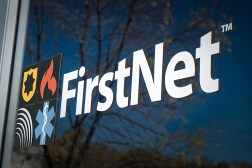With FirstNet deadline looming, states consider risks and penalties of opt-out

With less than two months left for states to make a decision on FirstNet, a U.S. House of Representatives subcommittee convened Wednesday to sort out the risks associated with a complex opt-out decision that one lawmaker characterized as “steep.”
Rep. Michael Doyle, a Democrat from Pennsylvania and vice chairman of the Subcommittee on Communications and the Internet, said unless states have tens of billions of dollars ready to spend on a dedicated network, they would need to “gamble on a private partner’s ability to leverage private capital, utilize a relatively small amount of shared spectrum and undertake the buildout of a hardened, multibillion-dollar communication network. And they need to do all of this in a timeframe that is competitive with FirstNet, using technologies and systems that are fully interoperable.”
Twenty-eight states and territories have opted in to the federal plan drafted by the federal agency and its vendor, AT&T, and while 18 states have RFPs in varying stages of development, none have yet decided to opt out of the federal plan in favor of building a network compatible with AT&T’s technology.
New Hampshire has spent the last two and a half years evaluating its two sole options and last month prepared for a potential opt-out with the formation of a FirstNet Opt-out Review Committee at the behest of Gov. Chris Sununu. State officials now say they are well-positioned to assist other states also considering a FirstNet opt-out, but emphasize that no decision has yet been made in New Hampshire.
New Hampshire Statewide Interoperability Coordinator John Stevens criticized the federal government and AT&T for creating “arbitrary and capricious fees and penalties” that “pressure” states to opt in.
“Unfortunately, states are now being threatened with outrageous and indefensible penalties that deter states from even considering an opt-out decision,” Stevens told the committee. “It honestly makes one believe that the [draft Spectrum Manager Lease Agreement] (SMLA) is fraught with fictitious and erroneous figures only to apply pressure on states to opt-in.”
New Hampshire’s potential penalty, which Stevens called “absurd,” ranges from $10.6 million to $608 million in the event that the state’s alternative buildout were to fail, Stevens said, citing his state’s private SMLA. Stevens “implored” the committee to “hold FirstNet accountable and take steps to ensure that FirstNet provides a full explanation of the numbers it has released.”
California is also considering the possibility of opting out, but officials have cited concerns with a potential $15 billion penalty if its opt-out attempt does not meet the technical requirements outlined by FirstNet, according to slide deck from the California Governor’s Office of Emergency Services.
When Democratic California Rep. Anna Eshoo expressed confusion with this figure and asked FirstNet CEO Mike Poth if it was intended as a penalty for not opting in. “Absolutely not,” Poth responded.
Poth explained that those figures were simply estimates of how much it would cost a state in the event that an alternative plan failed and FirstNet was then required to reconstitute a network from the ground up.
When questioned further on the risk that states face in opting out, Poth said, “The risk is not whether they opt out or opt in. … The risk is that the state that pursues an opt out truly has a robust solution with financial sustainability. Twenty-five years is a long time and this is a very complex project.”
In either scenario, FirstNet will work with states to ensure their public safety agencies receive the best possible outcomes, Poth said, but conceded that, “the integration and the complexity and the delays of an opt-out state — just by statute — complicate matters, certainly.”
Not what public safety had in mind
Brian Moran, secretary of public safety and homeland security in Virginia, noted that opting in was the best and only viable choice for his state.
“As a one-term administration, in the midst of transitioning to a new administration in January 2018, attempting to oversee and execute a project of this magnitude and ambiguity would have put the state on unsolid ground,” Moran told the committee.
Moran said that while its agreement with FirstNet has been largely satisfactory, AT&T “does not have sufficient rural and small market network coverage in Virginia to warrant many agencies switching to FirstNet” and so the state will continue working with the federal agency, AT&T and stakeholders to “ensure capabilities crucial to the success of the network come to fruition.”
Several other states, including California, Oregon and Washington, have noted similar concerns with AT&T’s lack of rural coverage. Some have used concerns like these as a talking point to underscore the importance of continued market competition both in undecided states and in states that have opted in. Public safety workers in opt-in states are not required to subscribe to FirstNet services and market competition is expected to continue to be a factor everywhere.
Former Washington, D.C., Chief Technology Officer Robert LeGrande, who is also the founder of a public safety communications consultancy called The Digital Decision, said FirstNet did not deliver what was originally envisioned, because AT&T’s network shares Radio Access Network (RAN) space with its commercial network.
LeGrande strongly emphasized the importance of competition in his statement and decried FirstNet’s close link to AT&T, claiming that at conferences “you cannot tell a FirstNet representative from an AT&T one.”
“If states are required to use the core network provided by AT&T, then it means they must use AT&T to provide service to their public safety users,” LeGrande told the committee. “That is not the kind of opt-out provision that public safety had in mind when it recommended such provisions be included in the law.”
Responding to LeGrande’s request that competing providers be allowed to operate independent network cores, AT&T Senior Vice President Christopher Sambar said that existing statutes don’t allow for that and that fact is probably in the best interest of cybersecurity.
Core-to-core interoperability is not something FirstNet is interested in because the agency doesn’t want to introduce needless vulnerabilities in the “seams” that would result from such connections, Sambar said.
He also noted that the company is taking extra precautions to ensure constant security of the network, including the decision to create a private app store, end-to-end network encryption, and a dedicated security operations center of “roughly 100 people who will do nothing 24 hours a day, 7 days a week, but monitor the traffic on this core network of first responders.”
In testimony submitted to the subcommittee by Verizon, the company also noted its support for competition and viable alternative choices for opt-out states.
“The FirstNet RFP was established as a spectrum deal, with the winning bidder required to commercialize the 700 MHz spectrum in order to fund the construction of a network. While Verizon understands the reasoning behind this decision, we chose not to respond to the FirstNet RFP,” the company said. “We have never had an interest in FirstNet’s spectrum and could not justify the investment required to build-out spectrum we had no intention of using commercially.”
Sambar told the committee he took personal exception to the implications of Verizon’s testimony.
“I spent 23 years between active and reserves in the military. This job and this task is personal to me,” Sambar said. “This is not a ‘spectrum deal.’ … AT&T is going to make money off it — we’re a for-profit company and I’m not trying to hide that fact, but this isn’t about spectrum and a ‘spectrum deal,’ this is about serving first responders, the folks that are behind me. We’re building something really special here and we’re giving something they haven’t had in a long time that the 9/11 Commission said that they needed, that you said that they needed, and that’s what we’re doing here.”
States have until Dec. 28 to make an opt-in or opt-out decision.






